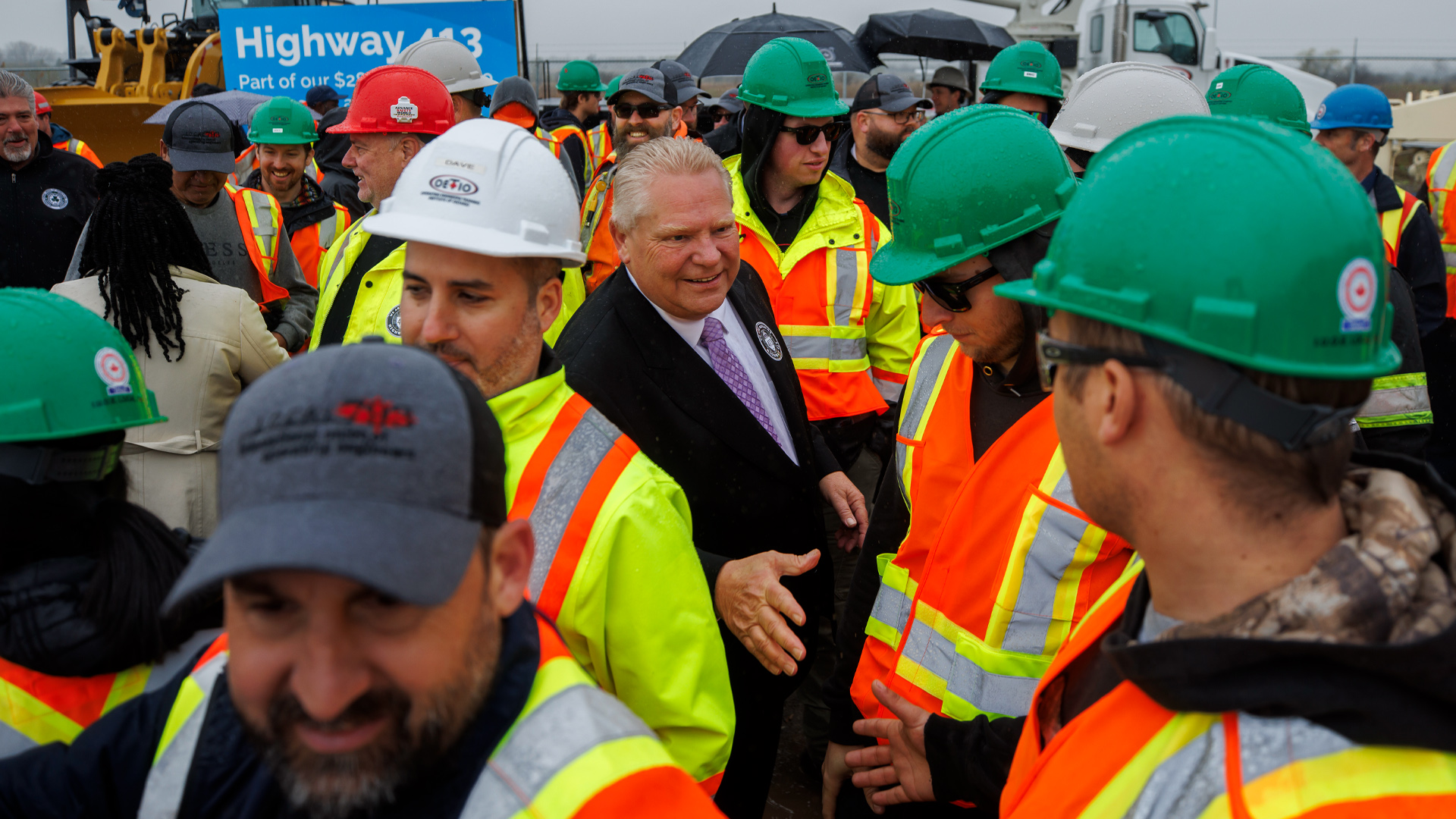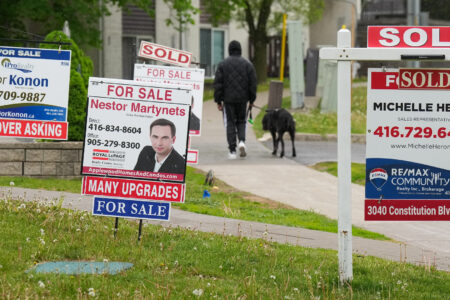
In a tumultuous end to 2023 in municipal politics in Ontario, the Ford government’s abrupt decision to walk away from dissolving the Regional Municipality of Peel – as outlined in Bill 112 – has reignited debate on the guiding values, procedures and effectiveness of the province’s decision-making process.
While most of the discussion has focused on public accusations by elected leaders of the move being a “political stunt.” the voices of residents across Ontario’s most diverse communities – who rely heavily on these upper-tier regional municipalities to provide essential human services such as housing and health care – seem to be forgotten.
Government transparency and public participation are essential components of effective policymaking. The provincial government set up a process that created little room for listening to the region’s residents or organizations such as the Metamorphosis Network, a collaborative of more than 100 non-profits across the municipalities of Mississauga, Brampton and Caledon.
Metamorphosis serves as a central voice for the community services sector and those it serves, raising awareness about the importance of regional services such as housing and health supports, particularly for a community that has been grossly underfunded by the province for years.
The network’s advocacy efforts include regular appearances at provincial, municipal and regional government meetings, as well as working with partners to host community events such as a Mississauga mayoral byelection debate, organized in collaboration with United Way Greater Toronto, Sheridan College and the Mississauga Board of Trade
Flip-flop decision-making hurts communities
Equally alarming, it appears that the Ontario government did not conduct any research on the financial impact before announcing its earlier decision to dissolve Peel Region.
This apparent lack of evidence-based policies and public engagement is a common theme for this government – leading to its repeated pattern of flip-flops on issues such as the Greenbelt, use of the notwithstanding clause and most recently the construction of fourplexes.
Each was ostensibly driven by partisan political calculus aimed at various constituencies of traditional Progressive Conservative support in business and society. The province’s about-faces on each of these issues led to large-scale protests, resistance and sometimes ridicule in civic and professional sectors ranging from environment to urban planning.
The resulting uncertainties have been particularly taxing on communities and organizations that have endured systemic uncertainty during the pandemic and the polycrises that followed. But the confusion has also been a bone of contention for conventional supporters in the premier’s assumed political base.
The adoption of “de facto” policy decisions detached from rigorous analysis (e.g., problem identification, community consultation, policy analysis and evidence-based design) oversimplifies complex problems in some of Ontario’s most dynamic and diverse communities.
Apart from being costly to affected communities, this style of management also sets a dangerous precedent because it undermines the vital democratic autonomy of city-level governments.
When asked about the rationale behind the government’s change in suddenly deciding to keep the Peel Region, the premier stated he is “open-minded” and added that the policy reversals that have existed throughout his tenure are a “good thing.”
Despite his positive self-assessment, these turbulent shifts in policy have led to a period marked by uncertainty, ignoring the fact that when decisions of this magnitude are made, actors at both the bureaucratic and community levels are forced into action – rallying their time, resources and expertise to find solutions to potentially mitigate the impact of such rushed policies.
The Metamorphosis Network typifies the pivotal role that community groups play time and time again, such as when non-profit organizations proved to be powerful in responding to the needs of marginalized and racialized communities during the COVID-19 pandemic.
The significance of public consultations
When Bill 112 was unveiled, confusion emerged across policy and community circles about why public consultations were avoided, especially considering the extreme swiftness with which the government had previously intended to move to break up Peel Region.
This lack of public consultation was also noted in the auditor general’s 2023 annual report after three provincial ministries – Municipal Affairs and Housing; Environment, Conservation and Parks; and Natural Resources and Forestry – violated the Environmental Bill of Rights (1993).
That legislation was designed to hold the government accountable when making policies related to the environment. Yet the process of making decisions such as the Greenbelt and housing framework failed to provide the public with complete information or to solicit feedback regarding the sweeping changes.
As students of planning would know, “good planning is guided by public interest.” Seeking public input throughout the policymaking process is essential in framing evidence, allocating public resources fairly, and directing solutions to balance short- and long-term goals, all while emphasizing the voices of those most likely to be affected by government decisions.
Since at least the 1960s, urban planning and policy scholars, as well as government practitioners, have recognized the value of expanding the depth and breadth of public participation to make it a more inclusive, meaningful and ongoing endeavour.
Though still imperfect and contested, Ontario’s community consultation process before Ford at least sought the involvement of community members and stakeholders who are now often excluded from the process
An example is Ontario’s legal duty to consult with First Nations and Métis communities – a process that is no longer as rigorous under the current provincial government.
Participatory exercises help ensure that decision-makers adequately consider the heterogeneous views and needs of diverse societal groups.
This interaction enhances the scrutiny and examination of proposed policy solutions by utilizing public engagement methods such as citizen focus groups, workshops, surveys, town halls and community meetings. Such activities not only lead to more informed government actions but also signal healthy democratic governance.
From alienated suburbs to self-defining urban democratic communities
For those who care and those who are affected by the Ontario government’s most recent chapter in opaque decision-making, the problem is not just the lack of transparency and accountability. Two further issues came to the fore in 2023.
First, the provincial government continues to treat municipalities like dependent administrative departments instead of thriving local democratic institutions that deserve to be taken seriously in their own right and on their own behalf. The “local state” should be more than an appendix of provincial politics and urban democracy should be more than a bureaucratic exercise.
A tale of two metropolitan regions
Some provincial governments seek conflict with municipalities
Some scholars have argued that the latter “depends on spaces in which it can be practised and learned not in the abstract but in the actual material world.” The Metamorphosis network and its partners in academia and the broader community are such a practice and learning space for local democracy that deserves to be expanded, relied upon and nurtured by provincial politicians.
Secondly, the provincial government continues a tired policy of treating any GTA municipality that is not Toronto as a suburban residential community.
This undersells the real and potential urban spaces that have grown around the core. It is a mistake to continue thinking of cities such as Markham, Vaughan, Brampton and Mississauga as suburbs first and cities later.
In fact, the issues they face that have come into full relief in a polycrisis, post-pandemic world are urban issues and need to be treated as such. Municipalities around Toronto now incorporate the wants and needs of hundreds of thousands – in some cases, approaching a million – residents, students and workers.
Their vitality and future is urban not suburban, complex not simple, one of citizens not just taxpayers, and one of active, self-defining democratic communities, not just administrative units of the provincial government.
The pandemic response showed Ontarians that urban governance is unimaginable without transparency and democratic participation. Of particular importance in this context is the tight and diverse network of community organizations and daily democratic practices that make life in the city livable.
It is about time the province learns that lesson and listens to its changing urban publics.










